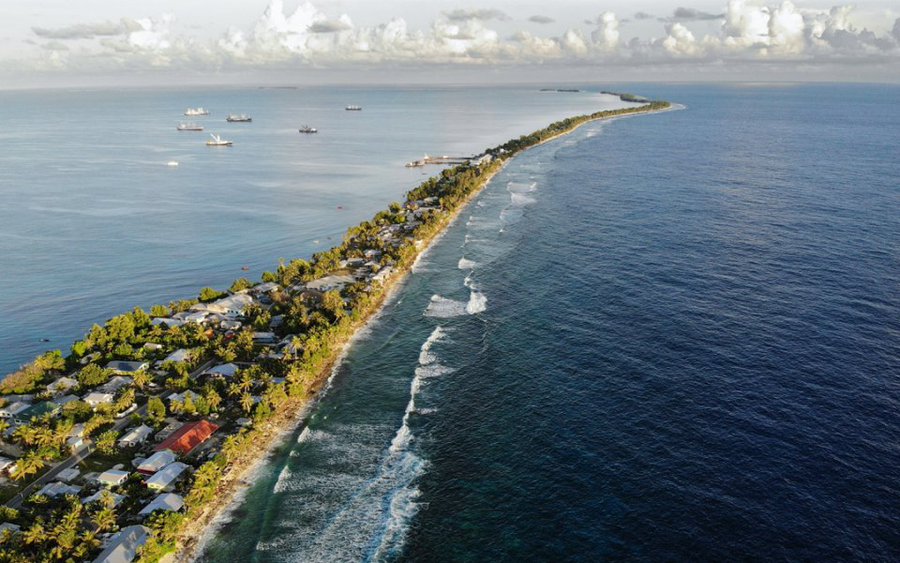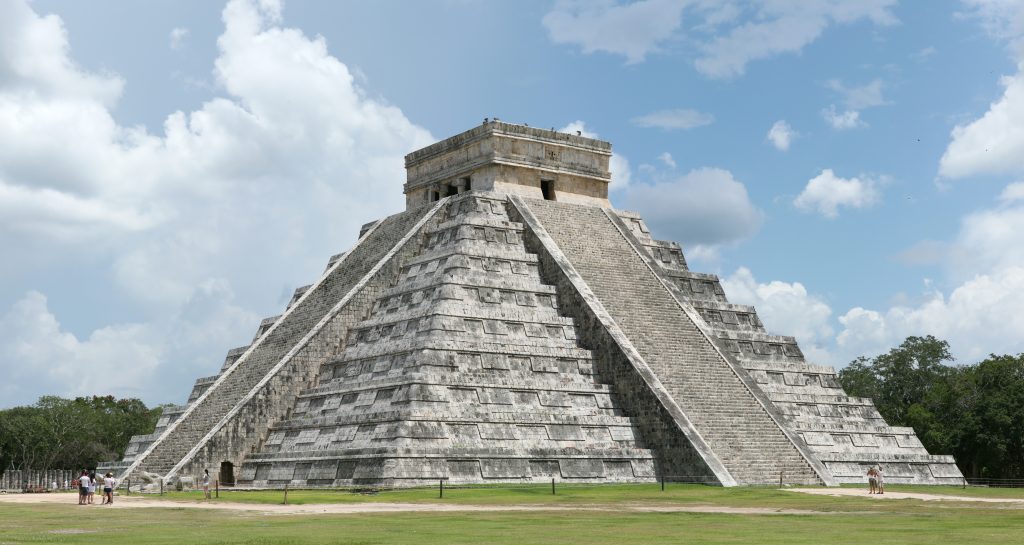 estled in the vast expanse of the Pacific Ocean lies the enchanting island nation of Tuvalu. Despite its small size, Tuvalu holds a unique claim to fame—it is widely regarded as the narrowest country in the world. This article explores the captivating story of Tuvalu, examining its geographical features, the challenges posed by its narrowness, and the remarkable resilience of its people in the face of environmental threats.
estled in the vast expanse of the Pacific Ocean lies the enchanting island nation of Tuvalu. Despite its small size, Tuvalu holds a unique claim to fame—it is widely regarded as the narrowest country in the world. This article explores the captivating story of Tuvalu, examining its geographical features, the challenges posed by its narrowness, and the remarkable resilience of its people in the face of environmental threats.
The Geography of Tuvalu
Tuvalu consists of a chain of nine coral atolls and islands, spread across a mere 26 square kilometers (10 square miles) of land. It stretches over a vast oceanic area, covering approximately 900,000 square kilometers (347,000 square miles) of the Pacific Ocean. The nation is comprised of three reef islands—Funafuti, Nukufetau, and Nukulaelae—and six atolls—Nanumea, Nanumaga, Niutao, Nui, Nukufetau, and Vaitupu.
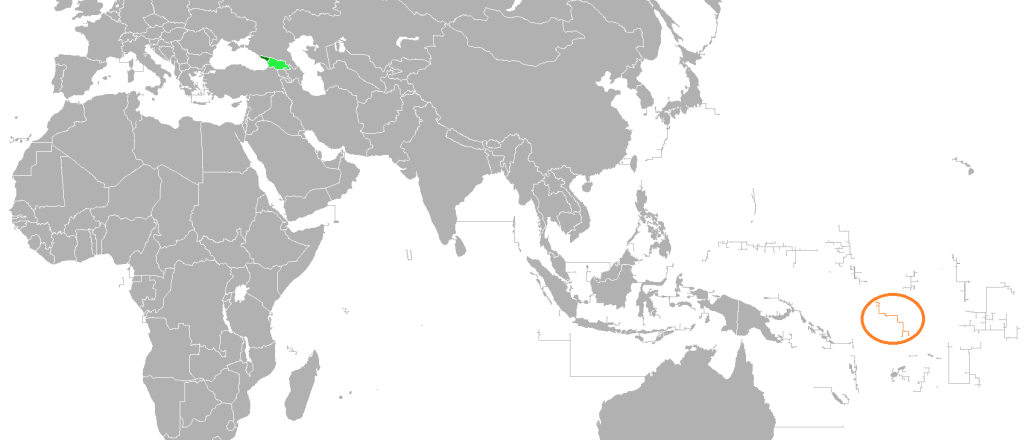
The narrowness of Tuvalu is a defining characteristic of the nation. It boasts an average width of just 1.8 kilometers (1.1 miles), with its widest point being only 5 kilometers (3.1 miles) across. This extraordinary narrowness is a result of its location on low-lying coral islands, where the land is surrounded by vast expanses of ocean.
Tuvalu’s geography grants it a unique and idyllic charm. With pristine sandy beaches, crystal-clear turquoise waters, and lush tropical vegetation, the country offers breathtaking natural beauty. However, the nation’s narrowness also presents significant challenges and vulnerabilities, particularly in the face of climate change and rising sea levels.
Living on the Edge: Challenges of Narrowness
The narrowness of Tuvalu’s landmass exposes the nation to a range of environmental and socio-economic challenges. Rising sea levels pose an existential threat, as the nation’s highest point is a mere 4.6 meters (15 feet) above sea level. The encroaching waters endanger Tuvalu’s freshwater resources, agriculture, and infrastructure, making the nation particularly vulnerable to the impacts of climate change.
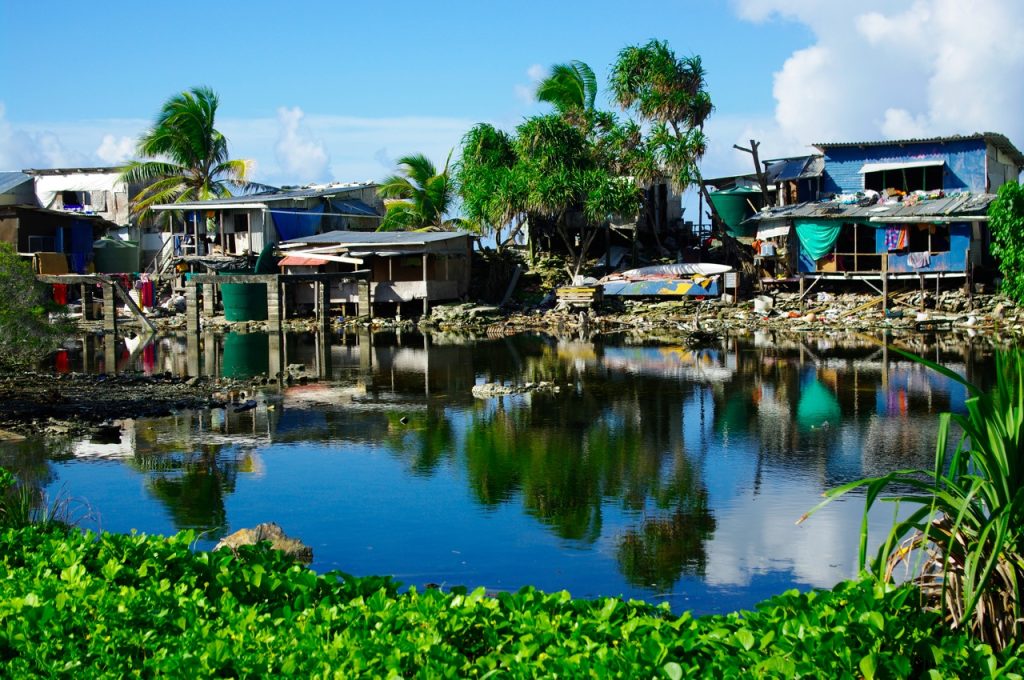
The limited land area also presents difficulties in terms of urban development and population growth. With limited space available, densely populated areas face challenges such as housing shortages, limited infrastructure, and restricted economic opportunities. The narrowness of the country’s landmass necessitates careful planning and sustainable resource management to ensure the well-being and livelihoods of its inhabitants.
Additionally, the narrowness of Tuvalu poses logistical challenges for trade and transportation. The lack of extensive road networks and the dependency on maritime transport limit connectivity between islands and with the outside world. The nation relies heavily on imports, making it susceptible to disruptions in supply chains. Addressing these challenges requires innovative solutions and international cooperation.
Resilience and Adaptation
Despite the numerous challenges posed by its narrowness, Tuvalu’s people have demonstrated remarkable resilience and adaptability. They have developed a deep connection with their environment and a strong sense of community. Traditional knowledge and practices play a crucial role in navigating the limitations of the narrow landmass, including sustainable agriculture, water management, and fishing techniques.
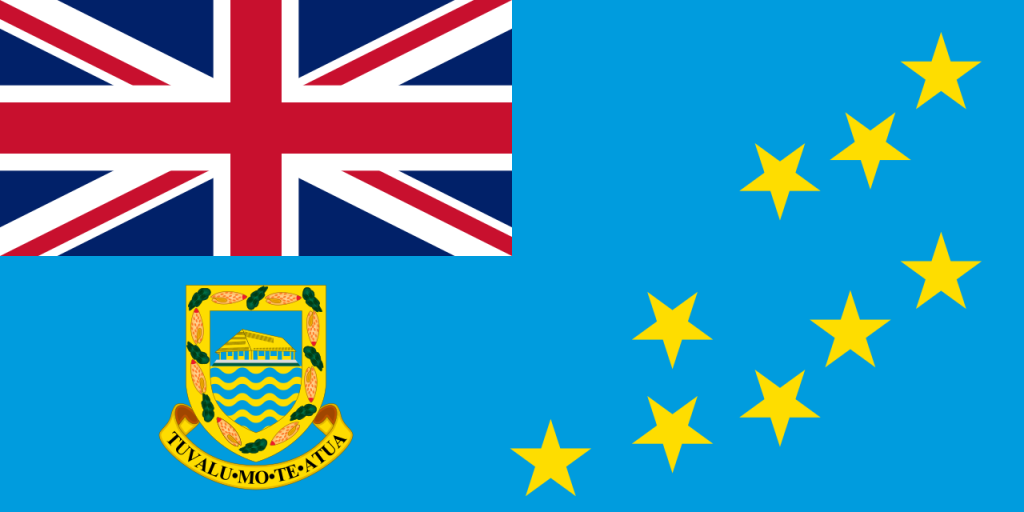
Tuvalu has also become a vocal advocate on the global stage for climate action and the protection of vulnerable nations. Its leaders actively participate in international climate negotiations, highlighting the urgent need for emission reductions and support for adaptation measures. The nation’s plight serves as a poignant reminder of the impacts of climate change and the need for global solidarity in addressing its effects.
Efforts are underway to promote sustainable development and strengthen Tuvalu’s resilience. Initiatives include the adoption of renewable energy sources, such as solar power, to reduce reliance on imported fossil fuels. Coastal protection measures, including the construction of seawalls and the preservation of natural barriers, aim to mitigate the impact of rising sea levels.
Embracing the Narrowness: Tuvalu’s Unique Identity
Tuvalu’s narrowness has become a defining aspect of its identity. The nation’s culture, traditions, and way of life are deeply intertwined with the surrounding ocean and limited land resources. The narrowness fosters a sense of unity and interconnectedness among Tuvaluans, emphasizing the importance of sustainable practices and the preservation of their unique natural heritage.
Tuvalu’s narrowness also presents opportunities for ecotourism, attracting visitors who seek to experience its pristine beauty and rich cultural heritage. The nation’s small size allows for intimate interactions with the local communities and a chance to witness firsthand the resilience and adaptability of the Tuvaluan people.
As the world grapples with the consequences of climate change, Tuvalu stands as a poignant symbol—a nation facing the frontlines of environmental challenges. Its narrowness serves as a powerful reminder of the fragility and interconnectedness of our planet. The story of Tuvalu is one of resilience, adaptation, and the urgent need for collective action to address the impacts of climate change.
Tuvalu’s distinction as the narrowest country in the world is not merely a geographical fact; it encapsulates the nation’s unique challenges, resilience, and unwavering spirit. The narrowness of Tuvalu’s landmass presents environmental, socio-economic, and logistical difficulties, particularly in the face of climate change. However, the people of Tuvalu have embraced their narrowness, finding strength in their cultural heritage, advocating for global climate action, and striving for sustainable development. Tuvalu’s story serves as an inspiration and a call to action to protect our shared planet and ensure a sustainable future for all.
Avid Writer with invaluable knowledge of Humanity!
Upcoming historian with over 30 million views online.
“You make your own life.”

